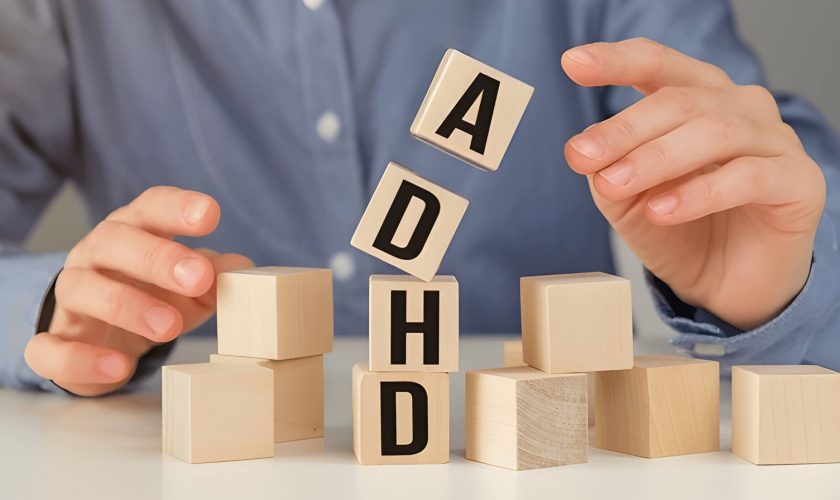Understanding bowel cancer is crucial for maintaining your overall health. Bowel cancer, also known as colorectal cancer, affects the large intestine and rectum. Early detection significantly improves treatment outcomes, making it essential to recognize common symptoms and understand potential warning signs.
Common Symptoms of Bowel Cancer
Bowel cancer, also known as colorectal cancer, can present with a variety of symptoms that may vary depending on the location and stage of the disease. Recognizing these signs early can significantly improve treatment outcomes. Here are some common symptoms of bowel cancer to be aware of:
1. Changes in Bowel Habits: One of the primary signs of bowel cancer is a noticeable change in bowel habits. This could include persistent diarrhea or constipation, or a change in the consistency or frequency of stools.
2. Blood in Stool: The presence of blood in your stool is a significant symptom that should not be ignored. It can appear as bright red blood or darker, tarry stools.
3. Abdominal Pain and Discomfort: Persistent abdominal pain, cramps, or discomfort can be indicative of bowel cancer. This pain might be localized to one area or more generalized across the abdomen.
4. Unexplained Weight Loss: Sudden and unexplained weight loss without any changes in diet or exercise routines can be another early symptom of bowel cancer.
5. Fatigue and Weakness: Chronic fatigue and weakness that do not improve with rest could also point towards bowel cancer, often due to anemia caused by bleeding within the intestines.
6. Feeling that Your Bowel Doesn’t Empty Completely: A sensation that your bowels are not fully emptying even after passing stool is another sign to watch for.
Early detection is crucial for effective treatment, so if you experience any combination of these symptoms persistently, it’s important to seek medical advice promptly for appropriate screening and diagnosis.
The Connection Between Stomach Noises and Bowel Health

Stomach noises, often referred to as bowel sounds or digestive system sounds, are a normal part of the body’s digestive process. These sounds are produced when the muscles of the stomach and intestines contract to move food, liquid, and gas through the gastrointestinal tract. While occasional stomach noises are completely natural and usually harmless, understanding their connection to bowel health can provide valuable insights into your overall gut health.
The presence of regular bowel sounds indicates that your digestive system is functioning properly. These noises typically occur when you’re hungry or after eating as your body processes food. However, changes in these sounds can sometimes signal underlying issues. For instance, hyperactive bowel sounds might suggest conditions like gastroenteritis or irritable bowel syndrome (IBS), whereas hypoactive or absent bowel sounds could indicate a blockage or severe constipation.
Maintaining good gut health is crucial for ensuring that these digestive system sounds remain within a normal range. A balanced diet rich in fiber, adequate hydration, regular exercise, and mindful eating habits all contribute to a healthy digestive system. If you notice persistent changes in your stomach noises accompanied by discomfort or other symptoms such as bloating or irregular bowel movements, it’s advisable to consult with a healthcare professional for further evaluation.
While stomach noises are generally a sign of healthy digestion, paying attention to significant changes can help you monitor your gut health more effectively. By maintaining proper dietary and lifestyle habits, you can support the optimal functioning of your digestive system and ensure those familiar gurgles remain just another part of everyday life.
When Are Stomach Noises a Warning Sign?
Stomach noises, often referred to as borborygmi, are typically a normal part of digestive processes. However, there are instances when these sounds can serve as a warning sign of underlying issues. Understanding the difference between normal and abnormal stomach sounds is crucial for maintaining good health.
Abnormal stomach sounds may indicate potential problems if they are accompanied by other symptoms such as severe pain, bloating, or changes in bowel habits. For instance, persistent gurgling or growling noises that coincide with abdominal discomfort could suggest conditions like irritable bowel syndrome (IBS) or gastrointestinal obstruction.
Serious stomach noises might also be linked to infections or inflammatory diseases such as gastroenteritis or Crohn’s disease. In these cases, the abnormal sounds are often coupled with symptoms like fever, vomiting, or diarrhea.
If you experience unusual stomach noises along with any alarming symptoms, it’s important to seek medical advice promptly. Early detection and treatment of potential issues can prevent complications and ensure better outcomes for your digestive health.
Other Warning Signs and Risk Factors for Bowel Cancer
When it comes to bowel cancer, also known as colorectal cancer, being aware of the various warning signs and risk factors can be crucial for early detection and effective treatment. While common symptoms like changes in bowel habits or blood in the stool are well-known, there are other warning signs of colon cancer that should not be overlooked.
One significant indicator is unexplained weight loss. If you notice a sudden drop in weight without any change in diet or exercise routines, it could be a red flag. Persistent abdominal pain or discomfort, such as cramps or bloating that doesn’t go away, is another symptom to watch out for.
In terms of bowel cancer risk factors, age plays a pivotal role; most cases occur in individuals over 50. A family history of colorectal cancer can also increase your risk significantly. Lifestyle choices like a diet high in red or processed meats, lack of physical activity, and smoking are additional contributing factors.
Moreover, certain medical conditions such as inflammatory bowel disease (IBD), including Crohn’s disease and ulcerative colitis, elevate the risk levels for developing colorectal cancer. It’s essential to discuss these risks with your healthcare provider to determine appropriate screening measures.
By staying informed about these lesser-known warning signs and understanding the various risk factors associated with bowel cancer, you can take proactive steps towards maintaining your health and seeking timely medical advice when necessary.
The Importance of Early Detection and Regular Screenings
Early detection and regular screenings play a crucial role in the successful treatment of various diseases, particularly bowel cancer. Early detection of bowel cancer significantly increases the chances of effective treatment and can often lead to a complete cure. One of the most reliable methods for early diagnosis is colonoscopy screening.
Colonoscopy screening allows doctors to examine the inner lining of your large intestine (rectum and colon) using a thin, flexible tube called a colonoscope. This procedure can identify abnormal growths, polyps, or signs of colorectal cancer at an early stage when they are most treatable. The importance of early diagnosis in colorectal cancer cannot be overstated; it not only improves survival rates but also ensures that patients have access to less invasive treatments.
Regular screenings are recommended for individuals over 50 or those with a family history of colorectal cancer. These screenings are essential as they help detect potential issues before symptoms appear, allowing for timely intervention. By prioritizing early detection through scheduled colonoscopy screenings, individuals can take proactive steps towards maintaining their health and potentially saving their lives from this preventable disease.
Treatment Options for Bowel Cancer Patients
When it comes to treating bowel cancer, there are several options available that can be tailored to the individual needs of each patient. One of the primary treatment methods is colorectal surgery, which involves the removal of cancerous sections of the bowel. This type of surgery can range from minimally invasive laparoscopic procedures to more extensive open surgeries, depending on the stage and location of the cancer.
In addition to surgery, other treatment options may include chemotherapy and radiation therapy. Chemotherapy uses powerful drugs to target and kill cancer cells, while radiation therapy employs high-energy rays to destroy cancerous tissue. These treatments can be used alone or in combination with surgery to enhance their effectiveness.
Another emerging option in treating bowel cancer is targeted therapy, which focuses on specific molecules involved in tumor growth and progression. This approach aims at minimizing damage to healthy cells while effectively attacking cancer cells.
The choice of treatment depends on various factors such as the stage of the disease, overall health of the patient, and specific characteristics of the tumor. Consulting with a team of medical professionals specializing in colorectal treatments is crucial for determining an individualized treatment plan that offers the best chance for successful outcomes.
Lifestyle Changes to Reduce Your Risk of Bowel Cancer
Bowel cancer, also known as colorectal cancer, is a significant health concern worldwide. However, adopting certain lifestyle changes can play a crucial role in reducing your risk of developing this disease.
Healthy Diet
A balanced and nutritious diet is fundamental in disease prevention. Consuming a variety of fruits, vegetables, whole grains, and lean proteins can provide essential nutrients that support overall health. Specifically, diets high in fiber have been linked to a lower risk of bowel cancer. Reducing the intake of red and processed meats is also advisable as these have been associated with an increased risk.
Regular Exercise
Physical activity is another important factor in maintaining bowel health. Engaging in regular exercise helps to regulate body weight and improve digestion, both of which are beneficial in lowering the risk of bowel cancer. Aim for at least 30 minutes of moderate-intensity exercise most days of the week.
Reducing Stress
Chronic stress can negatively impact your immune system and overall well-being, potentially increasing the risk for various diseases including bowel cancer. Incorporating stress-reducing activities such as yoga, meditation, or even simple breathing exercises into your daily routine can be highly effective.
By making these lifestyle changes you can significantly lower your risk of developing bowel cancer while enhancing your overall quality of life.





